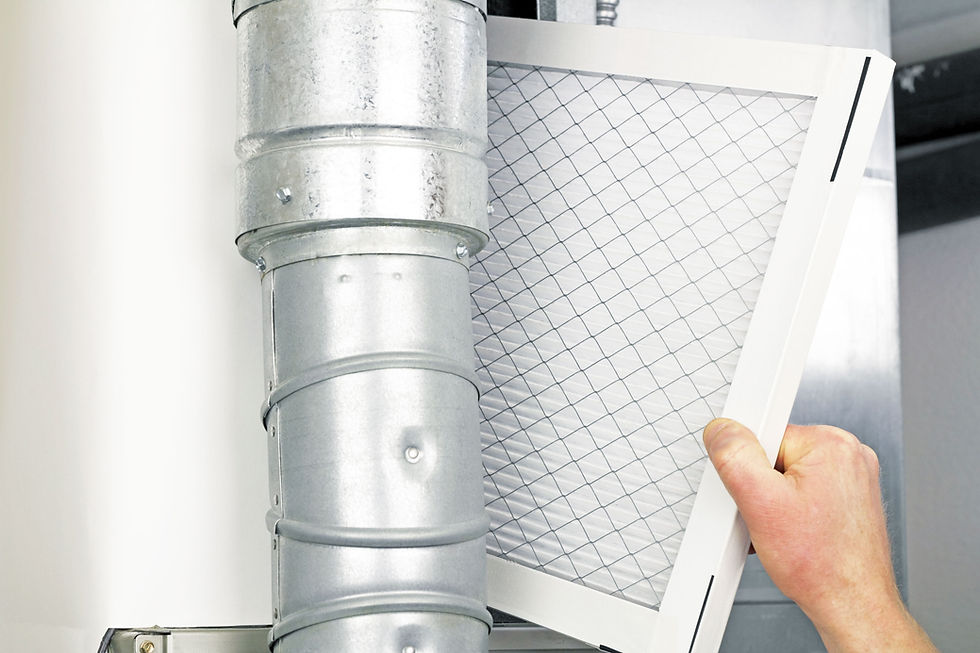Common Winter HVAC Emergencies—And How to Avoid Them
- Brian Easton HVAC Group
- Sep 15, 2025
- 2 min read
Winter in Ontario can be harsh, and homeowners in Niagara know that heating problems can quickly turn into costly emergencies. Frozen pipes, furnace failures, and clogged filters are among the most common HVAC emergencies during the cold season. Understanding the causes and taking preventative steps can help you stay warm, protect your home, and avoid expensive repairs.
Frozen Pipes: A Hidden Winter Threat Frozen pipes are one of the most damaging winter HVAC emergencies in Ontario homes. When water in your pipes freezes, it expands, which can cause cracks or bursts. This not only leads to water damage but also interrupts your home’s heating and hot water supply.
Prevention Tips:
Insulate Pipes: Use pipe insulation in basements, garages, and other unheated areas to prevent freezing.
Maintain Heat: Keep your home at a consistent temperature, even when you’re away.
Let Faucets Drip: Allowing a slow trickle of water through vulnerable pipes can prevent freezing by keeping water moving.

Furnace Failure: The Cold-Weather Nightmare Nothing is more inconvenient than a furnace breaking down on a frigid night. Furnace failure is often caused by lack of maintenance, worn-out parts, or fuel supply issues. Older units are especially prone to sudden breakdowns during heavy winter use.
Prevention Tips:
Schedule a Fall Furnace Tune-Up: Regular inspections in Niagara ensure your system is ready for winter.
Change Air Filters: Clean filters improve airflow, reduce strain on your furnace, and prevent overheating.
Monitor System Performance: Unusual noises, uneven heating, or frequent cycling are warning signs that require professional attention.
Clogged Filters and Poor Airflow Clogged filters may seem minor, but they can quickly escalate into major HVAC emergencies. Restricted airflow forces your furnace to work harder, reducing efficiency and potentially causing parts to overheat or fail.
Prevention Tips:
Regular Filter Replacement: Check filters monthly during winter and replace them as needed.
Inspect Ductwork: Ensure vents are clear and ducts are sealed to maintain proper airflow.
Professional Cleaning: A yearly HVAC inspection can identify hidden clogs or issues before they cause system failure.
Additional Winter HVAC Tips
Install a Carbon Monoxide Detector: Faulty furnaces can release dangerous gases; detectors provide an essential safety measure.
Know Your Emergency Contacts: Keep the number of a trusted Niagara HVAC repair service on hand to respond quickly to any issues.
Consider Upgrades: If your system is more than 15–20 years old, replacing it may be a smarter way to prevent winter emergencies altogether.
Common winter HVAC emergencies in Ontario, from frozen pipes to furnace failures, can be stressful and costly. However, with proper maintenance, timely inspections, and preventative measures, you can reduce the risk of heating problems and ensure your home stays warm and safe all season. Niagara homeowners, who plan ahead, avoid the common winter HVAC emergencies, enjoy peace of mind and uninterrupted comfort, even during the coldest months.



Comments